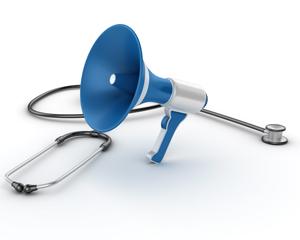Proudly Part of Privia Health

Testosterone - Cornerstone of Men's Health
Testosterone is a hormone that plays a crucial role in various aspects of a man's life, including muscle mass, bone density, energy levels, and sexual function.
However, as men age, their testosterone levels naturally decline, which can lead to a range of symptoms and health issues.
In this blog, we will explore what low testosterone is, its common symptoms, potential causes, and what patients should watch out for when it comes to this hormonal imbalance.
Understanding Low Testosterone:
Low testosterone, also known as hypogonadism, is a condition characterized by insufficient levels of testosterone in the body. While it's more common in older men, it can affect individuals of any age. Testosterone is primarily produced in the testes, and its levels are regulated by a complex feedback system involving the brain and the pituitary gland. When this system is disrupted, it can lead to low testosterone.
Common Symptoms of Low Testosterone
- Low Libido: One of the most noticeable symptoms of low testosterone is a reduced interest in sex and a decline in sexual performance. Men with low testosterone may experience decreased sexual desire and difficulty achieving or maintaining erections.
- Fatigue and Low Energy Levels: Low testosterone can result in decreased energy levels, persistent fatigue, and a sense of general lethargy, which can impact daily activities and quality of life.
- Loss of Muscle Mass: Testosterone is essential for maintaining muscle mass and strength. Individuals with low testosterone may notice muscle atrophy and a decrease in overall muscle tone.
- Increased Body Fat: Low testosterone can lead to an increase in body fat, particularly around the abdomen. This can contribute to weight gain and an increased risk of metabolic conditions like type 2 diabetes.
- Mood Changes: Some men with low testosterone may experience mood swings, irritability, and even depression. Hormonal imbalances can have a significant impact on mental well-being.
- Cognitive Changes: Some studies have suggested a link between low testosterone and cognitive decline, including problems with memory and concentration.
- Reduced Bone Density: Testosterone is crucial for maintaining strong bones. Low testosterone levels can lead to a decrease in bone density, potentially increasing the risk of fractures.
Potential Causes of Low Testosterone
Several factors can contribute to low testosterone levels, including:
- Aging: Natural age-related decline in testosterone is common, with levels decreasing by about 1-2% per year after the age of 30.
- Medical Conditions: Certain medical conditions, such as diabetes, obesity, and chronic kidney disease, can interfere with testosterone production.
- Medications: Some medications, including opioids and corticosteroids, can lower testosterone levels.
- Lifestyle Factors: Excessive alcohol consumption, smoking, and a sedentary lifestyle can all contribute to low testosterone.
- Injury or Infection: Trauma or infections affecting the testicles can impair testosterone production.
What Patients Should Watch Out For
If you suspect you have low testosterone or are experiencing any of the symptoms mentioned above, it's essential to consult a healthcare provider for a proper diagnosis and treatment plan. Low testosterone can have a significant impact on your overall health and quality of life, but there are effective treatment options available. These may include:
- Hormone Replacement Therapy: Testosterone replacement therapy (TRT) involves the use of gels, injections, patches, or implants to restore testosterone levels to a healthy range. This therapy can alleviate many of the symptoms associated with low testosterone.
- Lifestyle Changes: Adopting a healthy lifestyle by maintaining a balanced diet, engaging in regular exercise, managing stress, and getting adequate sleep can help improve testosterone levels naturally.
- Medication Review: If low testosterone is caused by medications you're taking, your healthcare provider may recommend alternative treatments or adjustments to your medication regimen.
Low testosterone is a common condition that can affect men of all ages, with a range of symptoms that impact both physical and emotional well-being. Recognizing the signs and seeking medical advice is crucial for addressing this hormonal imbalance effectively. With proper diagnosis and treatment, many men can regain their vitality, energy, and overall quality of life. If you suspect you have low testosterone, don't hesitate to consult a healthcare professional to discuss your concerns and explore appropriate treatment options.
#menshealth #lowt #vitalityformen #wecarepcp
